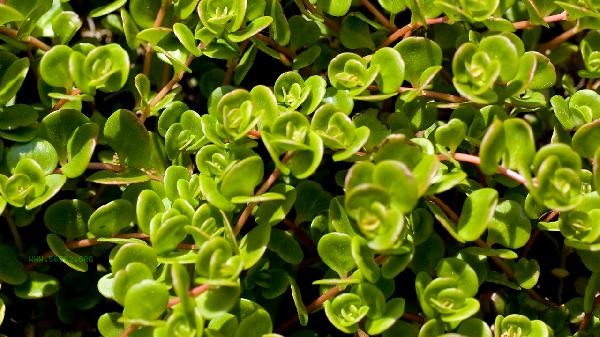How to eat to nourish the stomach in autumn? There is a large temperature difference between morning and evening in autumn, which can easily lead to stomach discomfort such as stomach cold. To nourish the stomach, it is necessary to arrange a reasonable diet. Let me introduce how to eat for stomach nourishment in autumn.
Autumn stomach nourishing food
Corn: Although we are most familiar with the sunny yellow corn, there are actually many types of corn - from pink to blue to black - each with its own special antioxidant nutrients. Each corn or half cup of corn kernels contains approximately 2 grams of fiber. Popcorn also contains high fiber, but that's not a reason for you to eat it aggressively, as it contains a lot of cream and sugar. Apples: In addition to being rich in vitamins, apples contain fiber that can stimulate intestinal peristalsis, accelerate bowel movements, and therefore have a laxative effect, which is good for constipation. Waist beans: Waist beans are named after their resemblance to human kidneys, and in North India and New Orleans, red beans and waist beans are the main food ingredients. Like their close relatives, almost all beans we eat are rich in fiber, protein, and iron.
Apples: In addition to being rich in vitamins, apples contain fiber that can stimulate intestinal peristalsis, accelerate bowel movements, and therefore have a laxative effect, which is good for constipation. Waist beans: Waist beans are named after their resemblance to human kidneys, and in North India and New Orleans, red beans and waist beans are the main food ingredients. Like their close relatives, almost all beans we eat are rich in fiber, protein, and iron.
Black beans: Each cup of black beans contains 15 grams of fiber and approximately 15 grams of protein. Their plump black color represents abundant flavonoids, and foods with soil colors contain a large amount of antioxidants. After adding beans and other high fiber foods to your daily diet, be sure to drink plenty of water.
Brown rice: Rice has a better taste, but its nutritional value is obviously much higher. Its chewy texture may take you some time to adapt.
But it's also worth it. Each cup of brown rice contains 3.5 grams of fiber. Eating rice five or more times a week will increase the risk of two types of diabetes by 17%, and after adding brown rice twice, the risk will be reduced to 11%.
Whole wheat bread: White bread is made with finely ground flour, which means that the shells and bran of the grains have been removed. And bran is the core of the embryo. Whole wheat bread maintains these highly nutritious and fiber rich ingredients, so replacing white bread with whole wheat bread is a great way to increase nutrition. If you do this, your daily fiber intake will be greatly improved. Oat Congee: Oat contains glucan, which is a special fiber, has a good cholesterol lowering effect, and can also improve the immune system function. Oats are mixed with both soluble fiber (which can lower cholesterol) and insoluble fiber (which can help keep the digestive system open). Next, let's take a look at the dietary misconceptions for nourishing the stomach in autumn.
Oat Congee: Oat contains glucan, which is a special fiber, has a good cholesterol lowering effect, and can also improve the immune system function. Oats are mixed with both soluble fiber (which can lower cholesterol) and insoluble fiber (which can help keep the digestive system open). Next, let's take a look at the dietary misconceptions for nourishing the stomach in autumn.
Dietary Misconceptions for Nourishing the Stomach in Autumn
Avoid excessive drinking. Alcohol itself can directly damage the gastric mucosa, and it can also cause liver cirrhosis and chronic pancreatitis, which in turn worsen the damage to the stomach.
Avoid becoming addicted to smoking. Smoking can promote constriction of gastric mucosal blood vessels and reduce prostaglandin synthesis in the gastric mucosa, which is a mucosal protective factor. Smoking can also stimulate the secretion of stomach acid and protease, exacerbating the damage to the mucosa.
Avoid uneven hunger and satiety. When hungry, the stomach acid and protease in the stomach are not neutralized by food and have high concentrations, which can easily cause self digestion of the mucosa. Overeating can also damage the self-protection mechanism of the stomach; Excessive dilation of the stomach wall and prolonged food retention can lead to stomach damage.
Avoid eating unclean food. Helicobacter pylori infection is one of the important causes of gastric and duodenal ulcers. In ulcer patients, the detection rate of this bacterium is as high as 70-90%, and it disappears after the ulcer disease is cured. Ulcer patients can be infected through close contact with tableware, dental utensils, and kissing. Unclean food is also one of the causes of infection.
Avoid overeating at dinner. Some people tend to focus their daily food nutrition on dinner, or like to eat late night snacks or something before going to bed. This not only leads to poor sleep and obesity, but also stimulates the gastric mucosa, causing excessive secretion of stomach acid and leading to ulcer formation.
Avoid wolfing down food. Food enters the stomach, undergoes storage, grinding, and digestion to turn it into a milky consistency before being discharged into the intestine. If the food is not chewed thoroughly, wolfed down, and rough, it will increase the burden on the stomach, prolong the stay time, and cause damage to the gastric mucosa; In addition, chewing slowly can increase saliva secretion and reduce gastric acid and bile secretion, which is beneficial for protecting the stomach.
Avoid coffee and strong tea. Coffee and strong tea are both central stimulants that can cause gastric mucosal ischemia through reflex, disrupting the protective function of the gastric mucosa and leading to the occurrence of ulcers. In addition, it is also important to note that it is not advisable to eat cold foods.
Avoid eating cold foods to nourish the stomach in autumn
As the weather gradually cools down in autumn, many people may start to feel discomfort in their stomach. Autumn is the season when stomach diseases are prone to occur or recur. Because the gastrointestinal tract is very sensitive to cold and heat stimulation, autumn is already characterized by a significant temperature difference between day and night, and a slight lack of attention can easily lead to catching a cold, causing gastrointestinal diseases or worsening existing stomach problems. Therefore, it is important to keep the stomach warm and cover it with bedding when sleeping at night.
Especially for people with chronic gastritis or Yang deficiency or Qi deficiency constitution, they should pay more attention to nourishing their stomach in autumn. Traditional Chinese medicine believes that yang qi has the function of warming the limbs and organs. People with yang deficiency constitution are prone to symptoms of deficiency and coldness. Gastric yang deficiency is very common in this group of people, while people with qi deficiency constitution often feel weak, have poor appetite, and pale complexion. These two groups of people have poor spleen and stomach function, so they are also prone to stomach problems in autumn. Adding ginger and pepper in moderation to food for patients with stomach cold has the effect of nourishing and warming the stomach.
Remember the above points when nourishing the stomach in autumn.





Comments (0)
Leave a Comment
No comments yet
Be the first to share your thoughts!